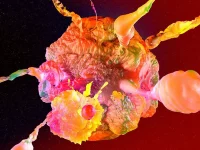New film: Park Chan-Wook’s ‘Decision To Leave’

CLIMBING It’s been six years since the director’s last movie here, The Handmaiden, which made a splash at Cannes in 2016. Will Decision To Leave get the same unanimous applause? Well, that depends if you like the whole movie or just parts of it. I am in the latter category. Is it as strong as some of his other films? No, but the characters make taking the entire two-hour and 18-minute ride to the end worth it.
Seo-rae (Tang Wei), is now a widow. Her husband tumbled off of a cliff accidentally. Or did he? Hae-Joon (Park Hae-il) starts to suspect Seo-rae to be the killer. He has a reason, as her affect is flat when a woman should be grieving over her husband, right? This doesn’t stop Hae-joon from obsessing over her. Seo-rae’s quiet and mysterious demeanor is intoxicating to a man who is used to having all the answers. As the investigation drags on, Hae-joon’s life begins to unravel and his stalkerish behavior becomes noticed by Seo-rae who begins to play into it.
He’s so enamored with her, he doesn’t realize he’s screwing up the whole investigation and can’t move forward without things looking suspicious on his end. Even his detective partner calls him out on how he’s handling this case and showing favor to the suspect. To get free of her, Hae-joon and his wife, (yes, he’s married), move to another location.
But getting rid of Seo-rae isn’t going to be easy. Where at first she was just toying with the detective, she begins to obsess over him, and moves to his new city. It is here the audience learns about about Seo-rae’s past, and how she got caught up in this drama. The complex, subtle emotions that tie these two characters together are a noir mix of romance and intrigue that don’t always gel during the entirety of the film.
The first 80 minutes are tightly paced, sexy and smart. Park crafts and frames his characters in strategic ways that inform the audience of what’s going on inside their heads, while injecting bits of sarcasm and humor to break up those serious moments. There is a sensuality in every move, and every glance. Park even manages to fill a police interrogation with sex appeal.
The building blocks to discovering who the major players are, are laid bare so the audience can enjoy living with these characters. Hae-joon and Seo-rae are polar opposites but compliment one another. He’s a straight-laced, by-the-book cop who loves his job, and she’s chaos walking and often attracts the wrong type of men. Going on this journey with these two is a wild ride. That is, until the second half of the film approaches and things dive off a cliff (no pun intended).
Elements of the film that felt even, become disjointed. Decision To Leave jumps all over the place, and exposition scenes have to remind viewers where it is in the timeline. The shooting style that once felt exciting, feels erratic at this point as the camera starts moving like a tennis ball at a Serena Williams match.
The second major reveal is underwhelming. I refused to accept it, and refused to take it seriously (yes, even in the world of Park Chan-wook). While his films tend to always go on for 30-minutes longer than they should, he still wraps it up in a satisfying way, but for Decision To Leave, the conclusion is emotionless and didn’t leave an impression on me.
The women of the film are its most valuable asset, particularly actress Tang-Wei who is extraordinary. She appears demure on the outside but explodes with sex appeal without trying. There is a reason why Ang Lee chose her as lead in his film Lust, Caution. She’s got that something and it’s unclear why she isn’t a Hollywood star yet.










